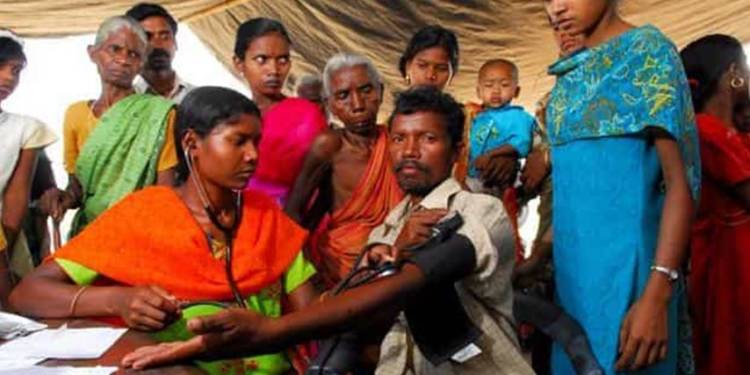The Coronavirus Pandemic has left healthcare services overstretched in all countries, including India, and now India might face a spike HIV-AIDS, Tuberculosis (TB) and Malaria incidence and deaths, as the focus of the entire system shifts onto tackling the COVID-19 outbreak, allowing the Coronavirus outbreak to claim the lives of non-Coronavirus patients.
Three mathematical models have corroborated the chances of increased Tuberculosis (TB), Malaria, and AIDS incidence due to a shift in the focus of the healthcare system. Experts say that as the coronavirus lockdown is being relaxed, it is necessary that healthcare services for these diseases, catch up.
The WHO southeast Asia Regional Director Poonam Khetrapal Singh said, “As we battle Covid-19, we must ensure that essential health services continue to function.”
She added, “Previous disease outbreaks have demonstrated that when health systems are overwhelmed, mortality from vaccine-preventable and other treatable conditions can increase dramatically.”
The modelling study about Tuberculosis (TB), commissioned by Stop TB partnership in association with the Imperial College, Avenir Health, and Johns Hopkins University, supported by USAID, pointed out that every passing month of the coronavirus lockdown in India could result in an extra 40,685 deaths between 2020 and 2025 due to TB.
India is a high TB-incidence country and South Asia has 40 percent of the TB cases across the world. In fact, India has the highest TB burden in the world accounting for 27 per cent of the total cases.
Currently, there are as many as 26,90,000 people in India who are suffering from TB, and any loopholes in the overstretched healthcare system could lead to an absolute catastrophe amid the coronavirus pandemic.
The other mathematical model revealed that the Coronavirus pandemic and its impact on the healthcare system could lead to a two-fold increase in the number of malaria deaths, while the study on AIDS has revealed that a six-month-long disruption in the antiretroviral therapy could cause five lakh deaths in the Sub-Saharan African region due to AIDS-like illness in 2020-21.
Director of McGill International TB Centre, McGill University-Canada said, “For people living with HIV, the biggest concern is missing doses of antiretrovirals. And in malaria-endemic areas of India, the critical issue is that children with high fever might not get tested and treated for malaria. This could increase the risk of malaria deaths.”
These are again diseases with a high incidence in India. India has a very high burden of Malaria- one of the highest in the world with as many as 4 million cases getting reported last year. The burden, however, came down sharply from 6.7 million in 2018, but this advantage could stand lost if the Coronavirus outbreak puts an extra burden on the healthcare facilities.
Even in the case of AIDS-related deaths, India will have to be cautious. We record 87,000 new cases and 69,000 AIDS-related deaths every year, and any gaps in the healthcare system can take up these numbers sharply creating another healthcare crisis that could be just as hard to battle as the ongoing Pandemic itself.
India needs to reduce the Coronavirus burden on its overstretched healthcare system, and ensure that enough space is carved out at all times to accommodate those inflicted with other deadly diseases- TB, Malaria and AIDS in particular given the new studies that have surfaced.
Last month, it was reported that the government was contemplating changing the hospitalisation policy for the ongoing coronavirus pandemic, limiting hospitalisation only to those who really need it.
Now, the government must consider this even more seriously as patients with milder symptoms who face no need for immediate hospitalisation can be kept out of hospitals, in order to reduce the unnecessary strain on the healthcare system.
India has battled the coronavirus pandemic effectively, and the last thing the country needs is other diseases eroding the humongous effort made by the COVID-19 warriors in keeping the country safe from the novel Wuhan virus.




























